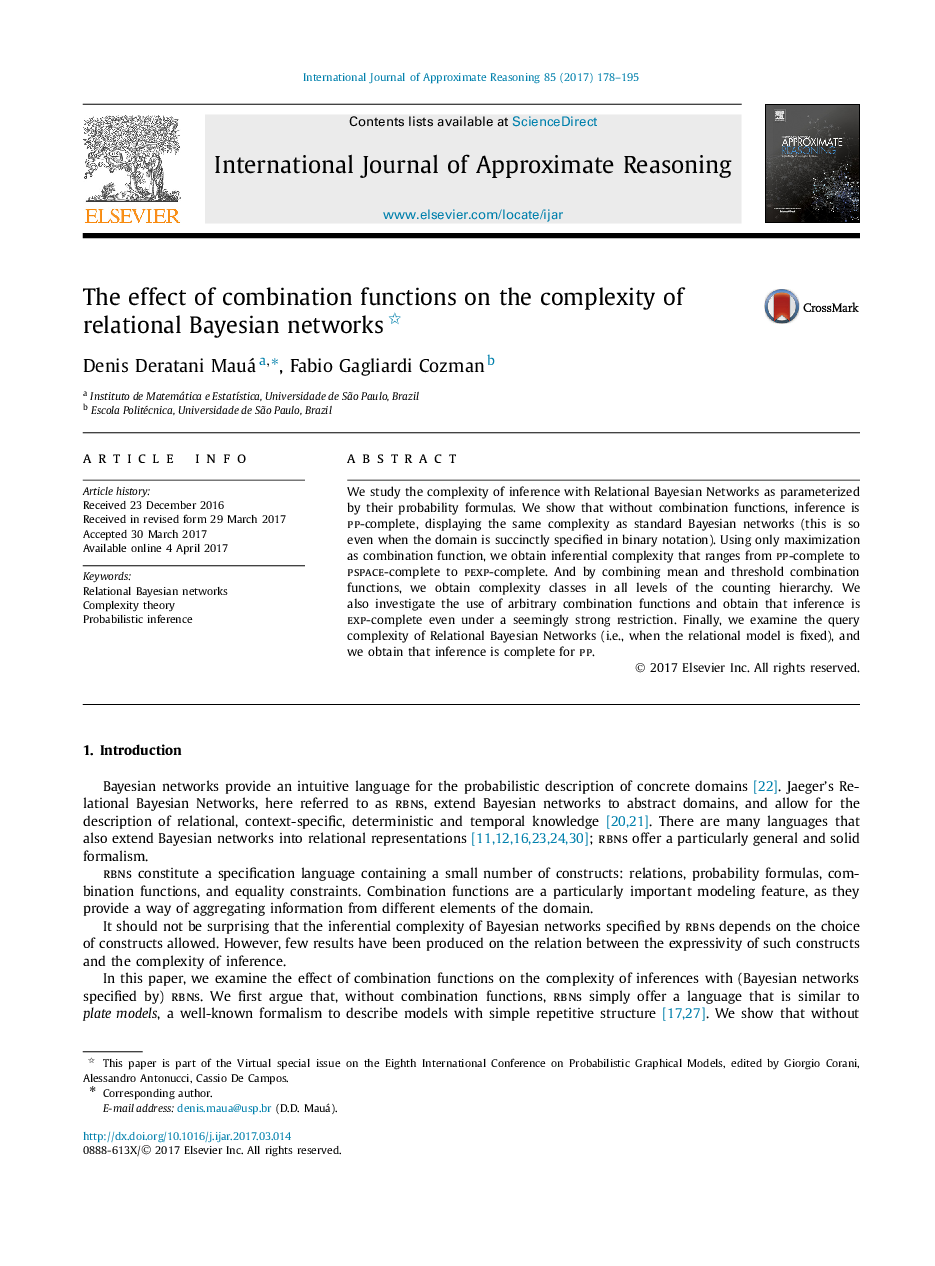| Article ID | Journal | Published Year | Pages | File Type |
|---|---|---|---|---|
| 4945248 | International Journal of Approximate Reasoning | 2017 | 18 Pages |
Abstract
We study the complexity of inference with Relational Bayesian Networks as parameterized by their probability formulas. We show that without combination functions, inference is pp-complete, displaying the same complexity as standard Bayesian networks (this is so even when the domain is succinctly specified in binary notation). Using only maximization as combination function, we obtain inferential complexity that ranges from pp-complete to pspace-complete to pexp-complete. And by combining mean and threshold combination functions, we obtain complexity classes in all levels of the counting hierarchy. We also investigate the use of arbitrary combination functions and obtain that inference is exp-complete even under a seemingly strong restriction. Finally, we examine the query complexity of Relational Bayesian Networks (i.e., when the relational model is fixed), and we obtain that inference is complete for pp.
Related Topics
Physical Sciences and Engineering
Computer Science
Artificial Intelligence
Authors
Denis Deratani Mauá, Fabio Gagliardi Cozman,
